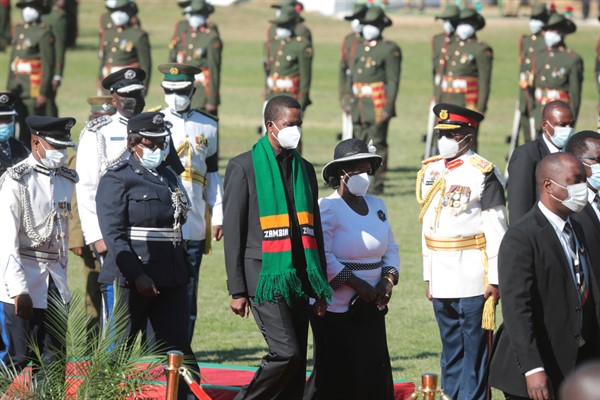Zambia will hold general elections Thursday amid rising uncertainty about whether President Edgar Lungu will relinquish power if he loses. Political tensions are high, as Lungu deployed the army last week to several parts of the country, including Lusaka, the capital, in a controversial and unprecedented move. Lungu justified the decision by citing the need to maintain order amid flare-ups of preelection violence that left at least two people dead.
But opposition and civil society leaders have pointed to the fact that the military has been deployed to a number of areas without high levels of violence as evidence that the real motivation is to intimidate opposition voters—and to have the army on standby to suppress post-election protests. Adding to the volatile situation, the country is mired in an economic crisis that, along with growing public concern over corruption and Lungu’s autocratic tendencies, gives long-time opposition leader Hakainde Hichilema his best-ever chance of winning power.
Under Lungu and his party, the Patriotic Front, Zambians have seen their standard of living deteriorate. Although the PF has raised the national minimum wage and implemented a popular road-building project, it has also presided over a debt default and economic collapse. Thus, it is not just that Zambians think the economy is in a bad state—they have also lost confidence that the PF can put things right.

